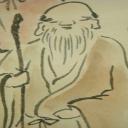Yahoo Answers is shutting down on May 4th, 2021 (Eastern Time) and beginning April 20th, 2021 (Eastern Time) the Yahoo Answers website will be in read-only mode. There will be no changes to other Yahoo properties or services, or your Yahoo account. You can find more information about the Yahoo Answers shutdown and how to download your data on this help page.
Trending News
1 Answer
- P'angLv 71 decade agoFavorite Answer
Avalokitesvara appears frequently in the Mahayana Canon of Buddhist texts, but does not appear (to my knowledge) in the Pali Canon.
There is no evidence that Buddha spoke any of the words in either of the canons, although the traditional view is that the Pali Canon represents the Buddha's actual teaching while the Mahayana Canon represents the teachings of later enlightened minds. Scholarly research has shown this traditional view to be incorrect.
This means that there is no conclusive way to answer your question.
Buddhism is not alone in having uncertain origins to its teachings. The Gospels of the Bible were written down about 80 years after Jesus' death and none of the authors were alive when Jesus taught. They were written in Greek, a language that Jesus and the disciples did not speak, read or write.
In my view, this gap between teaching and authoring does not negate the value of the teachings (of either Jesus or Buddha). It simply means that we might test the teachings against our own experience of life, adopting those portions that seem consistent with our experience and setting aside those that don't. (For example, the Buddha taught that practitioners should avoid garlic and onions. No thanks.) To work with the texts in this way avoids the pitfalls of fundamentalism.
Okay, enough of my rant. Hope this helps!



